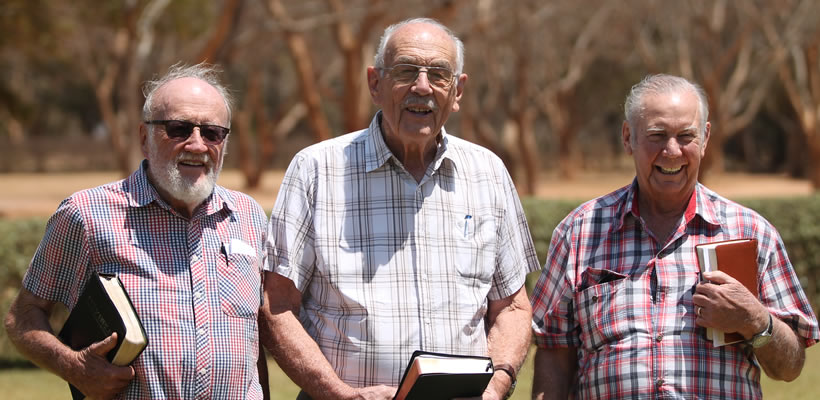
Founding Trustees Russell Wyatt, David Moffat and Barton Young.
Looking Back
In October 1985, during a church retreat, the Mkushi Christian Fellowship was presented with the challenge of starting a secondary school. The urgent need for such a facility was based upon the fact that there had been a general decline in educational standards and key people in rural areas particularly did not have easy access to secondary education. The cost of education overseas or in neighbouring countries was prohibitive and led to many leaving the country when their children reached secondary school age.
After much prayer and careful consideration, the leaders of Mkushi Christian Fellowship responded by deciding to establish a secondary boarding school rooted firmly on Christian principles in the Mkushi district. It should provide education particularly for children of farmers and people actively involved in Christian work and be an outreach into the community, training potential church and national leaders.
The school should have high academic standards and give the opportunity for young people to develop fully their God-given abilities in all spheres by including a range of practical and outdoor activities. It was emphasised that the school should provide neither a 'veneer' of Christianity nor be a 'spiritual hothouse'. However, it should give a positive exposure to Christianity, which will equip for life in modern society.
At the beginning of 1986 a farmhouse and outbuildings with 200 hectares of land was donated for the school. A Trust was established and after recruiting sufficient staff and acquiring temporary classrooms, the doors were opened in 1988 with an initial intake of 50 children.
The school is governed by a Board with representatives from a broad spectrum of Christian leadership in Zambia. Its function is to co-ordinate the provision of material and human resources and oversee the direction and development of the school. A fundamental policy is that the school should be a 'non-profit' organisation and fees should only cover running expenses, not capital costs.
